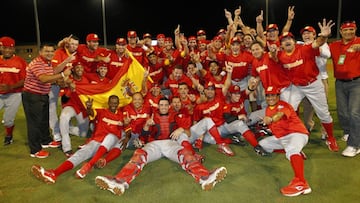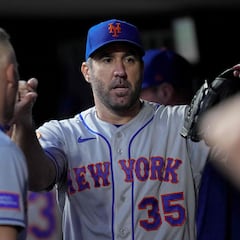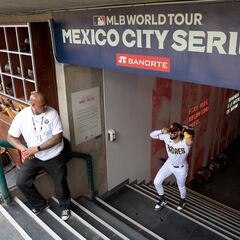Why hasn’t Spain taken to baseball the way Latin America did?
With baseball held in high esteem throughout most of Latin America, it is perhaps odd that their colonial masters show little interest in the sport.


El rey de los deportes. “The king of sports.” This is how baseball is known on the Caribbean coast of Colombia. In Cartagena, Barranquilla, and Santa Marta, baseball reigns supreme.
Nobody would argue that soccer is the biggest sport in the country, or in all of Latin America for that matter, but within regional boundaries, there are several baseball-shaped oasis. In the case of Colombia, soccer is everywhere. High in the Andean cordillera, cycling is a passion. And on the Caribbean coast, baseball is king.
In Venezuela, much the same is true, with baseball sitting near the heart of Caracas, displacing all other pastimes. Panama, Cuba, and the Dominican Republic follow the same pattern. Puerto Rico, Mexico, and Nicaragua have vibrant baseball traditions, and in each case the distribution of the game follows the Colombian formula: inland is all about soccer, but the coastal region is baseball country. All in all, the Spanish Main is perhaps the cradle of baseball’s global influence.
Highlights: Spain vs Japan - U-18 #Baseball World ...
— NPBHUB (@npbhub) May 10, 2023
https://t.co/oEPx8zF8bQ
#3892 #Gamerecap #ORIXBuffaloes #オリックスバファローズ #前佑囲斗 pic.twitter.com/R9jTPYPW7M
So why then has so little of this love of baseball filtered back to the colonial Motherland? Well, there is a simple answer and a more complicated one.
The simple answer is that soccer is a religion in Spain, leaving little oxygen for any other sport in the country. As they begin to see their countrymen enjoy success in other sports; such as Jon Rahm in golf, or Rafa Nadal in tennis; the Spanish public begin to take an interest in those sports as well.
But this is a question of chicken and egg. In order to grow the sport, any sport, you need to have some locals succeed on the top world stage. But to get the locals to that competitive level, the sport needs to have a foothold in the country. The NBA is a living, breathing example of that. Without interest in basketball in Spain, a player like Pau Gasol would not have developed. But without Pau Gasol, the Spanish public would have much less interest in basketball. Chicken and egg.
But simple love of soccer isn’t enough to fully explain Spain’s complicated history with baseball. In some part, a rejection of baseball by Spain was a direct reaction to their former colonies’ love of the game. As Cubans began to prefer baseball to bullfights, the jewel in the Spanish colonial crown also began to agitate for independence. The colonial rulers actually banned baseball, seeing it as a symbol of rebellion.
Jackie Robinson signing autographs in Cuba during spring training, 1947 pic.twitter.com/ohMXnzUKxK
— Baseball In Pics (@baseballinpix) May 7, 2023
A century later, with Spain’s empire a distant memory, Cuban immigrants to the country brought their love of baseball with them to Europe and The Spanish Baseball Federation (now known as the Royal Spanish Baseball and Softball Federation) was formed in 1944. Currently, there are two domestic leagues in Spain.
In keeping with baseball’s tradition of being a symbol of revolt, the game is most popular in Catalonia and the Basque country.
Unlike the other Caribbean colonial power, the Netherlands, who adopted the game wholeheartedly, creating a thriving professional league and becoming a global baseball powerhouse, Spain still languishes, falling to both Great Britain and the Czech Republic in the World Baseball Classic Qualification round.
And that is a shame for Spain, and for baseball as well. Alone in Europe, Spain has the type of climate that would serve a winter league well, particularly in the southern Andalucia region. The Canary Islands are effectively a European version of the Caribbean. If only there were a local appetite for the game, big things could happen.
Baseball field a few meters from the ocean 🌊. This is a beautiful field in Tenerife 🇪🇸. Thank you for another great fall camp. ⚾️🇨🇿#baseballczech #jsmečesko | @RFEBS pic.twitter.com/Dwb9jDw6cG
— BaseballCzech (@BaseballCzech) November 12, 2022
Related stories
With a steady stream of Latin American players, and even MLB gringos, flooding the winter leagues around the Caribbean, Spain would be well positioned to become a preferred destination for off-season play if only they would embrace the game. The Royal Spanish Baseball and Softball Federation is trying to grow the game in the country and are making slow inroads, but they are still a long way from there.
MLB has been playing their international series games in London since 2019 and are reportedly keen to expand further in Europe, looking to add a Paris date in 2024. With the long pedigree that baseball has with Spain’s former colonies, perhaps MLB should look to the Iberian peninsula in the near future. It may be just what both baseball and Spain need.

